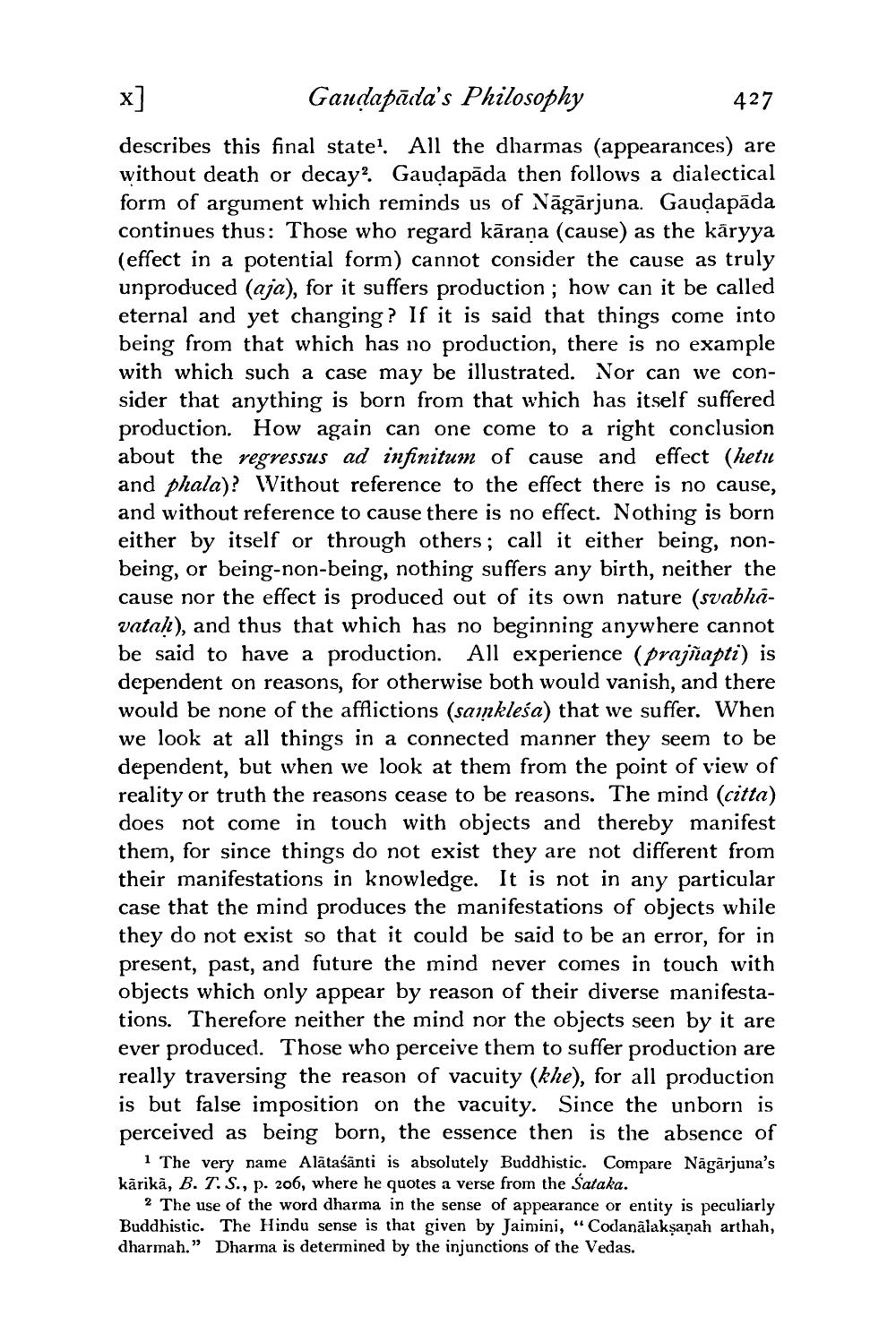________________
x]
Gaudapada's Philosophy
427
describes this final state1. All the dharmas (appearances) are without death or decay?. Gauḍapada then follows a dialectical form of argument which reminds us of Nagarjuna. Gauḍapāda continues thus: Those who regard kāraṇa (cause) as the käryya (effect in a potential form) cannot consider the cause as truly unproduced (aja), for it suffers production; how can it be called eternal and yet changing? If it is said that things come into being from that which has no production, there is no example with which such a case may be illustrated. Nor can we consider that anything is born from that which has itself suffered production. How again can one come to a right conclusion about the regressus ad infinitum of cause and effect (hetu and phala)? Without reference to the effect there is no cause, and without reference to cause there is no effect. Nothing is born either by itself or through others; call it either being, nonbeing, or being-non-being, nothing suffers any birth, neither the cause nor the effect is produced out of its own nature (svabhavatah), and thus that which has no beginning anywhere cannot be said to have a production. All experience (prajñapti) is dependent on reasons, for otherwise both would vanish, and there would be none of the afflictions (samklesa) that we suffer. When we look at all things in a connected manner they seem to be dependent, but when we look at them from the point of view of reality or truth the reasons cease to be reasons. The mind (citta) does not come in touch with objects and thereby manifest them, for since things do not exist they are not different from their manifestations in knowledge. It is not in any particular case that the mind produces the manifestations of objects while they do not exist so that it could be said to be an error, for in present, past, and future the mind never comes in touch with objects which only appear by reason of their diverse manifestations. Therefore neither the mind nor the objects seen by it are ever produced. Those who perceive them to suffer production are really traversing the reason of vacuity (khe), for all production is but false imposition on the vacuity. Since the unborn is perceived as being born, the essence then is the absence of
1 The very name Alataśānti is absolutely Buddhistic. Compare Nāgārjuna's kārikā, B. T. S., p. 206, where he quotes a verse from the Sataka.
2 The use of the word dharma in the sense of appearance or entity is peculiarly Buddhistic. The Hindu sense is that given by Jaimini, "Codanālakṣaṇah arthah, dharmah." Dharma is determined by the injunctions of the Vedas.




